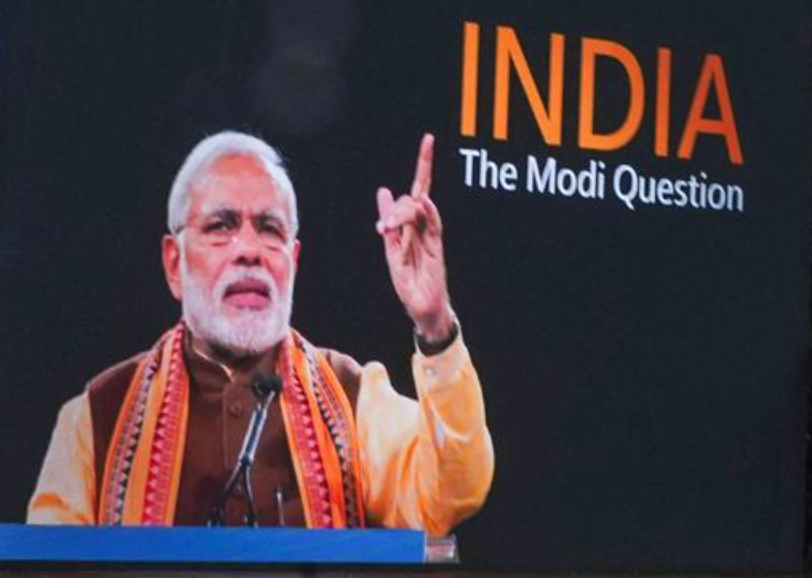A few weeks after the BBC released a documentary titles India: The Modi Question, which probed Indian Prime Minister Narendra Modi’s role in communal violence in Gujarat in 2002, when he was the state’s Chief Minister, its offices in India have been raided by the Income Tax authorities.
On February 14, a team of Income Tax Officials landed at the broadcaster’s offices in New Delhi and Mumbai and seized all the employees’ computers and personal phones. While the tax department has not put out any official press release, several media organisations quoted “sources” to say that this was a “survey” which formed a part of a tax investigation.
In a short statement, the BBC said it was “fully cooperating” with authorities, adding that it hoped to have the situation “resolved as soon as possible.”
While a senior advisor to the government told a local news channel that there was no connection between the documentary and the investigation, media watchdogs and rights groups have expressed fear that the raids are politically motivated.
The documentary, which was not officially released in India, made its way to YouTube and other video streaming platforms. The government called it “a propaganda piece designed to push a particular discredited narrative” and days later, invoked special emergency powers to get social media platforms to block it completely.
The ruling Bharatiya Janta Party’s spokesperson called the BBC “corrupt” and “rubbish” and that it should “respect Indian law.”
In recent years, similar raids have targeted journalists and civil society organizations critical of the Indian government with criminal cases under India’s opaque terrorism and sedition laws, and allegations of financial misconduct and improper foreign funding that have been used to freeze bank accounts.
The Press Club of India, in a statement, condemned the survey and said that it was, “part of a series of attacks on the media by the government agencies in recent times, especially against those sections of the media that the government perceives is hostile to it and critical of the ruling establishment.” It added that, “this latest instance appears to be a clear-cut case of vendetta, coming within weeks of a documentary aired by the BBC on the Gujarat riots.”
The Editors Guild of India, in a statement, said: “This comes soon after the release of two documentaries by the BBC, on 2002 violence in Gujarat and the current status of the minorities in India … This is a trend that undermines constitutional democracy.”
The Committee to Protect Journalists said: “Raiding the BBC’s India offices in the wake of a documentary criticizing Prime Minister Narendra Modi smacks of intimidation. Indian authorities have used tax investigations as a pretext to target critical news outlets before, and must cease harassing BBC employees immediately, in line with the values of freedom that should be espoused in the world’s largest democracy.”
Reporters Without Borders tweeted: “The searches by the tax authorities of the offices of BBC World in India, 3 weeks after the censorship of his documentary on Narendra Modi, constitutes an outrageous reprisal. RSF denounces these attempts to silence any criticism of the Indian government.” In the 2022 edition of the annual press freedom index published by Reporters Without Borders, India fell to 150th place out of 180 countries.
Western governments, however, have been silent on the “surveys”. The UK government has not put anything on record, while the US made a generic comment on the “importance of a free press around the world”.
Speaking to scroll.in, many foreign journalists said it was increasingly becoming clear to them that they had little backing from their governments back home.

